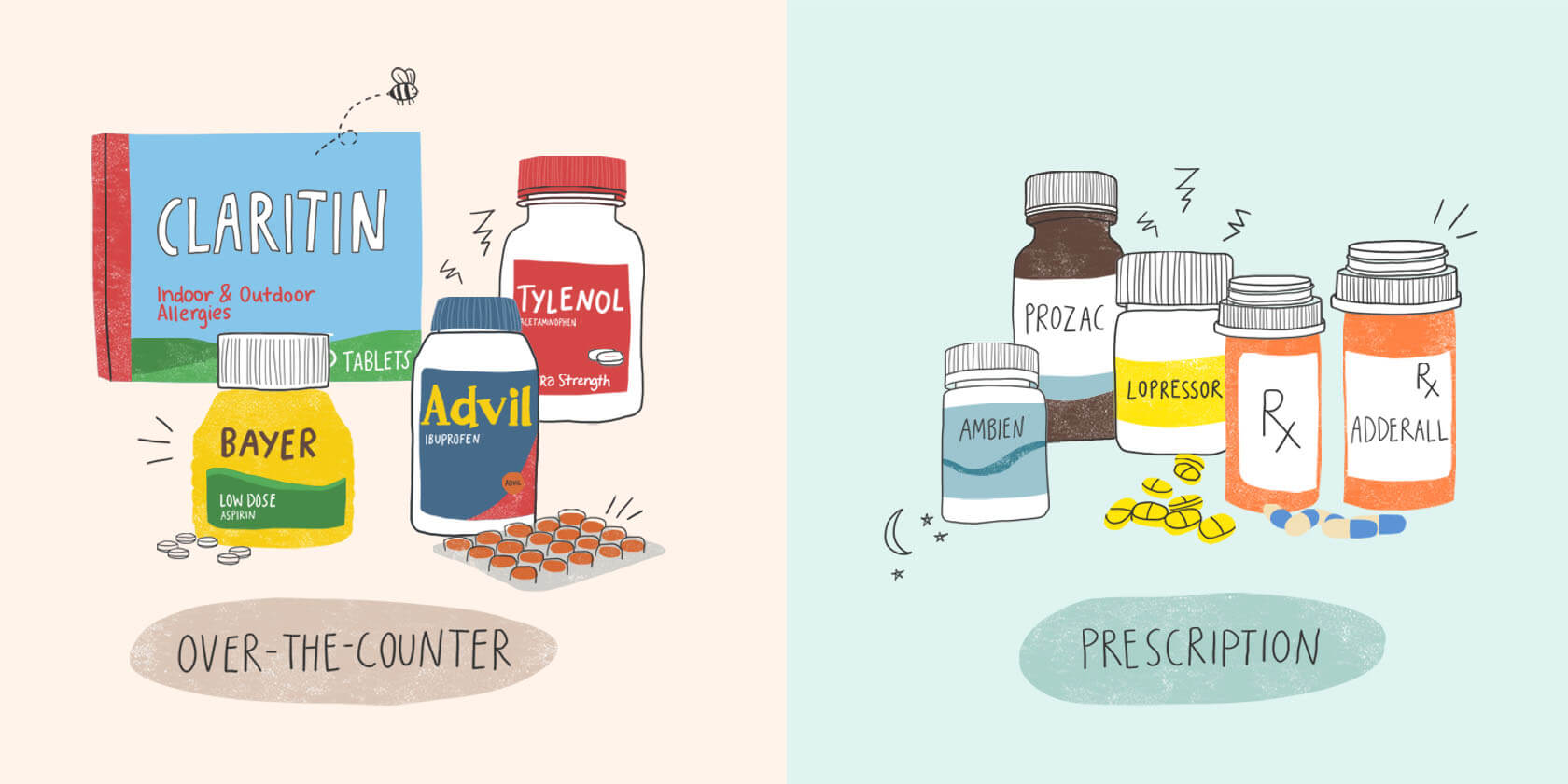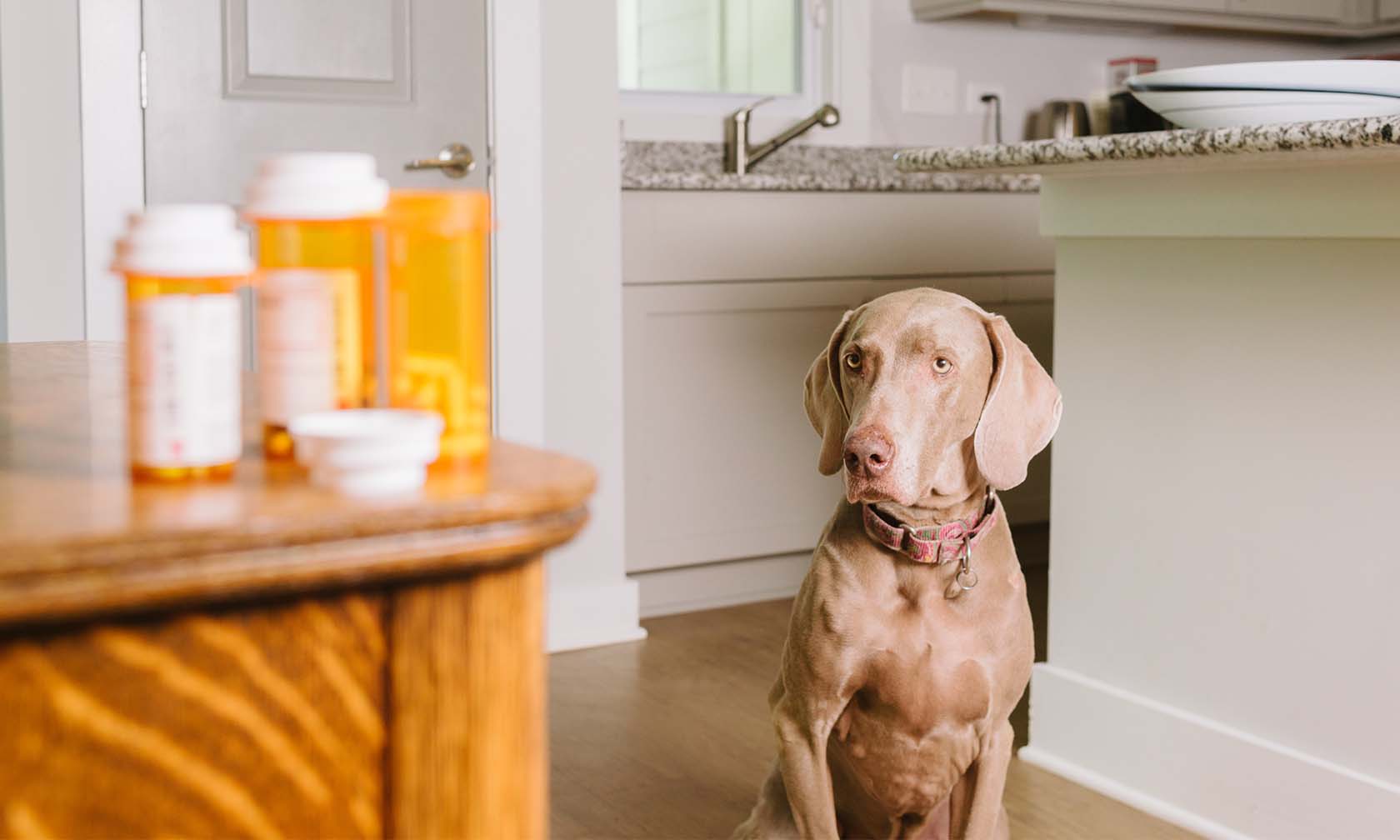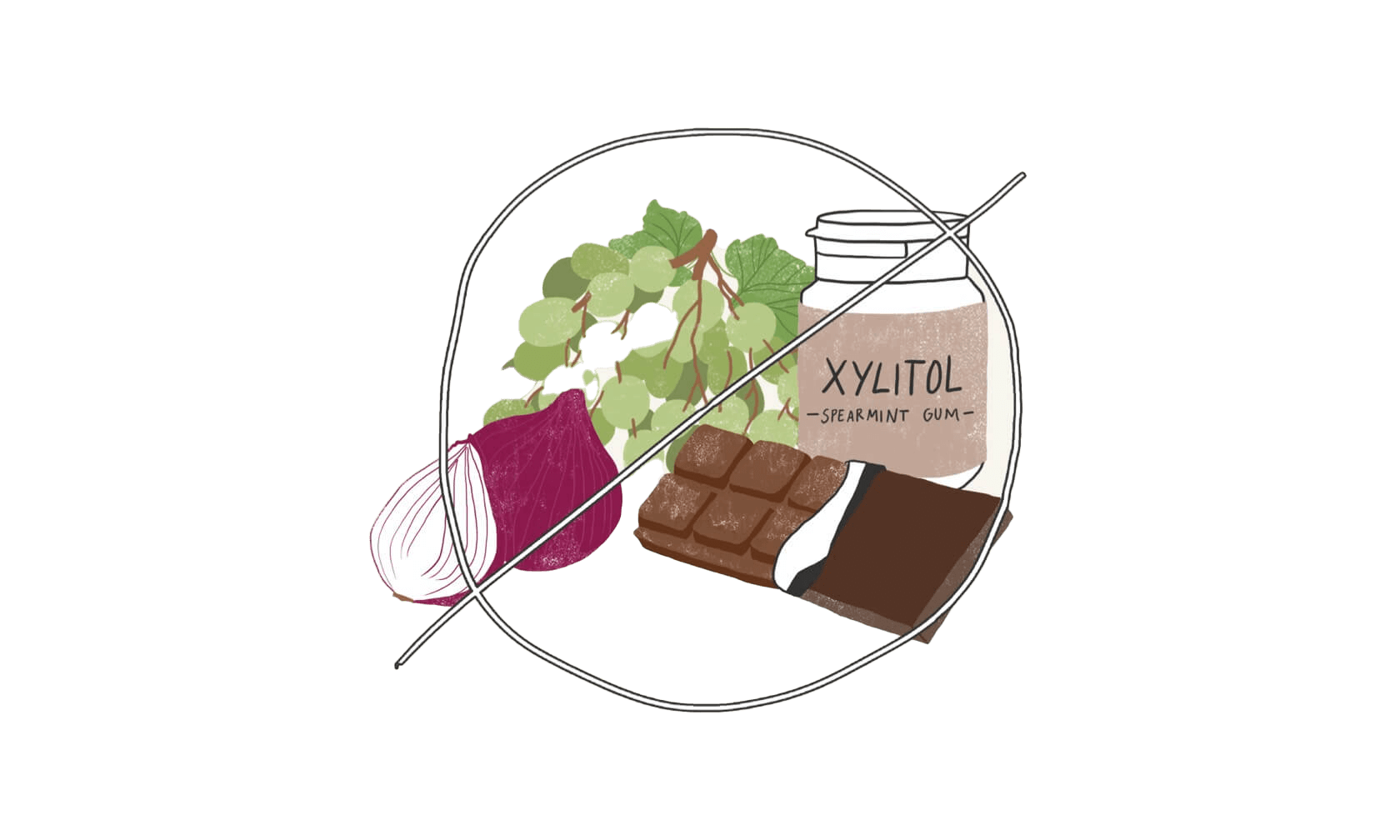When your dog is running around playing and suddenly starts limping, what do you do? Of course, you want them to feel better as quickly as possible while you figure out what’s going on. You might think that just one dose of your over–the–counter (OTC) or prescription pain reliever could help your pup. But stop right at that thought — just because something is safe for you does not mean it is safe for your dog! In fact, many human medications can be dangerous or even deadly for dogs.
Pets can also get into our medications accidentally. A pill dropped on the ground or a medicine bottle left on the counter or nightstand can look tempting to your curious pup. And unfortunately, even medications we use commonly and think of as safe can make your dog seriously sick. The toxic effects of human medications in dogs can range from gastrointestinal upset (vomiting and/or diarrhea) to more serious problems like seizures or liver or kidney failure if not treated quickly once ingested by your dog. This is why it's important to keep your medications securely stored and away from your dog at all times.
The ASPCA Animal Poison Control and the Pet Poison Helpline are two good sources of information and resources for pet owners to help keep their dogs safe.

Common Over–The–Counter (OTC) Medications That Are Not Safe for Dogs
Many people keep OTC medications in the house. Here are some of the more common OTC medications that are considered harmful to dogs.
- Acetaminophen (Tylenol®). Dogs do not metabolize this medication like humans, and overdoses can lead to liver failure and damage to red blood cells.
- Non–Steroidal Anti–Inflammatory Drugs/NSAIDs (Motrin®, Advil®, Aleve®). These drugs are absorbed quicker and metabolized slower in dogs and can lead to stomach ulcers as well as kidney failure.
- Allergy/Decongestant medications (Mucinex-D®, Claritin-D®, and Allegra-D®). Some of these drugs contain pseudoephedrine or phenylephrine, which can cause hyperactivity, increased heart rate, seizures, and even respiratory and cardiac failure.
- Aspirin (Bayer Aspirin®). At high doses, it can cause severe side effects such as vomiting, racing heart rate, and kidney failure.
There are some human OTC medications that are considered nontoxic for dogs at the dose recommended by a veterinarian. Be sure to follow your veterinarian’s exact instructions for administration of such medications, because administration or ingestion of higher doses can put your dog at risk and may require emergency treatment.
Common Human Prescription Medications That Are Not Safe for Dogs
Not only are the following medications dangerous for dogs, some are even on the Pet Poison Helpline's list of the top ten toxicities most often seen in pets.
- Antidepressants (including Effexor®, Lexapro®, Prozac®, Cymbalta®). High doses of this class of drugs may cause a build–up of serotonin or other chemicals in a dog's bloodstream, leading to tremors, incoordination, seizures, hyperactivity, elevated body temperature, and an extremely high heart rate.
- ADD and ADHD medications (including Adderall®, Ritalin®). These contain potent stimulants. Even low doses can cause tremors, seizures, and a dangerously elevated heart rate and body temperature.
- Blood pressure medications (including Toprol®, Lopressor®). Certain blood pressure medications are in a class called beta blockers, and even small amounts can cause your dog's heart rate and blood pressure to become dangerously low.
- Sleep aids (including Ambien®, Lunesta®). These drugs cause sedation in humans. An overdose in dogs can cause extreme sedation. In some, it may even cause agitation, hyperactivity, excessive drooling, and tremors.
How to Keep Your Dog Out of Household Medications
Treat all medications (OTC and prescription) with caution around dogs. Much like a toddler, assume your dog will put anything and everything in their mouth, including stray pills, powders, and liquids. They may even chew on the bottle itself. Despite what you may read online, it is never okay to give your dog any medication without consulting a veterinarian first. Here are some practical and important tips to keep your pup safe from medications that may harm them:
- Never leave medications on the countertop or nightstands. Some dogs can reach countertops, while others can easily chew through pill bottles. Even medications in child–safe containers aren't safe around your dog.
- Always store medication in a cabinet or drawer that closes securely. If your dog can open your storage location, consider child–proof locks.
- Never store your medications in plastic baggies. A dog can easily rip through the thin plastic.
- Keep human and pet medications in separate places. This way, you don't accidentally give your four–legged friend a drug meant for a two–legged family member. You can even write “Dog” on the prescription label or lid and highlight it to prevent any confusion.
- Never throw medications into garbage cans. Your pet may be able to get into the garbage and pull out bottles or loose pills. A stray pill or powder may even attach itself to something tasty in the garbage, making it that much more appealing.
- Take medications over the sink or an open drawer. If a stray pill does get away from you, or you spill a powder or liquid, it will be easier for you to find and clean up properly.
It may seem daunting trying to keep your dog away from household dangers. But don't worry. By taking the precautions mentioned in this article and being aware of your medications and storage habits, it isn't hard to keep your four–legged friend safe from medication toxicities.
ZPC-01049R2
- "Top Ten Toxicosis in Dogs and Cats" Wismer, Tina DVM. Today's Veterinary Practice: March/April 2013. https://todaysveterinarypractice.com/top-ten-toxicoses-in-dogs-cats/ Accessed January 19, 2021.



